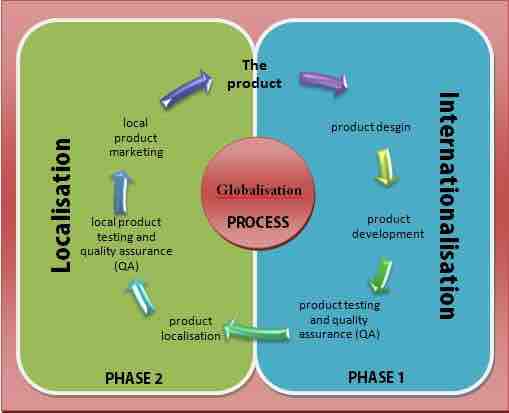Globalization is a hot topic in the business world today, garnering enormous attention as imports and exports continue to rise with companies expanding across the global marketplace. Understanding the basic overview of the global economy underlines highly relevant managerial and business level applications that provide useful insights to modern-day managers.
In general terms, globalization is the international integration of intercultural ideas, perspectives, products/services, culture, and technology. This has resulted in large scale interdependence between countries, as specialization (arguably the root cause of globalization) allows for specific regions to leverage their natural resources and abilities to efficiently produce specific products/services with which to trade for another country's specialization. This allows for a higher standard of living across the globe through higher efficiency, lower costs, better quality, and a more innovative and dynamic workforce.
Growth of Globalization
The ease of modern globalization is often attributed to rapid technological developments in transportation and communication. These form the central system of international exchange, allowing businesses to create meaningful relationships worldwide with minimal time investment and costs. Management is tasked with ensuring these resources are available to employees and properly leveraged to optimize the geographic reach of a business's operations. This has led to the existence of many multinational enterprises (MNEs), who argue that survival in the newly globalized economy requires sourcing of raw materials, services, production, and labor.
From a managerial perspective, the global workplace implies an enormous amount of diversity management. Estimates of the world labor pool in 2005 noted that multinational companies employed a stunning 3 billion workers cumulatively, which is nearly half of the entire world population. As a manager, this means developing a globally aware perspective that lends itself well to the specific geographic needs, values, and customs in which the business operates. Developing this global skill set is a powerful managerial skill.
Challenges of Globalization
Managers should also be aware of the best way to approach global demographics from a business to consumer perspective, taking an international product or service and localizing it successfully. This is a significant challenge, necessitating consideration for different tastes and branding strategies during the implementation process. This chart illustrates the process of moving from an international product to a localized product step by step, making note of the element of production that can be universally applied compared to those that need a localized touch.

Globalization Process
This chart illustrates the complementary localizing and internationalizing responsibilities of a globalizing organization. The organization must place an international focus on product design, development, and QA to ensure its broad relevance while also localizing marketing to tailor its appeal to individual markets.
Managers must also be particularly aware of the current criticisms of a highly global society, particularly as it pertains to ethical and environmental considerations. A global economy is, in many ways, enforcing a global culture. This global culture is often criticized for taking the place of previously established domestic cultures (and motivating consumerism).
As a result, managers should carefully consider how to best localize products to retain cultural identity in the regions they operate. Environmental concerns are of large importance as well, as the constant energy utilization required for this interchange pollutes the environment and uses high quantities of valuable energy-creating resources. Minimizing the damage done to the environment, and offsetting it as best as possible through philanthropic giving, is not only a wise marketing move but also a critical ethical consideration.
Conclusion
Combining these points, the globalized society presents enormous opportunity for businesses. Intercultural marketplaces allow for differing demographics, larger market potential, a more diverse customer base (and therefore more diverse product offering) and a highly valuable human resource potential. On the other end of the bargain, managers are tasked with localizing products and services effectively in a way that minimizes the adverse cultural and environmental effects caused by this rapid global expansion to maintain an ethical operation.